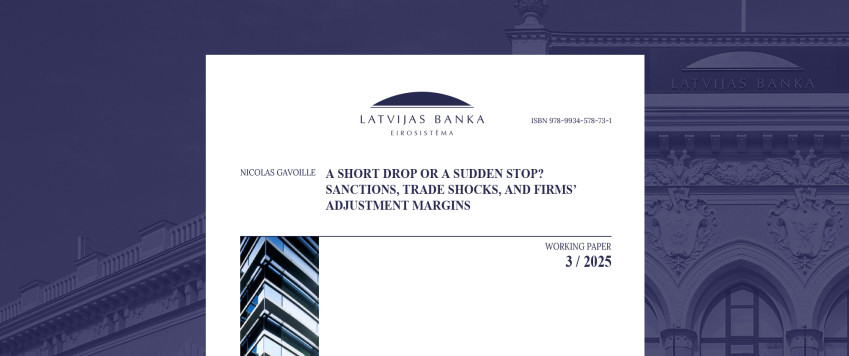A short drop or a sudden stop? Sanctions, trade shocks, and firms' adjustment margins
Working paper 3/2025

This paper examines firm-level responses to the large trade shock induced by the 2022 Russian invasion of Ukraine and the ensuing European Union sanctions. Using detailed administrative data from Latvia – a small, open economy with strong pre-war trade ties with Russia – I document the heterogeneous effects of the shock across firms with varying degrees of exposure. Employing a machine learning-based approach to determine a set of impacted firms and a difference-in-differences local projection method, the analysis shows that firms with lower initial exposure to Russia are the most likely to sever trade ties. Only a small set of firms, the most exposed to Russian trade, suffered significant losses in turnover, employment, and profitability, despite some trade reorientation towards CIS countries. Mere exposure to Russia emerges as the primary determinant of these patterns, whereas sanctions targeting specific goods do not play a direct role. These findings contribute to the broader literature on economic sanctions and trade policy by providing micro-level evidence on the adjustment mechanisms of European firms in response to geopolitical disruptions.
Keywords: Sanctions, Trade shock, Firm behavior, Adjustment margins
JEL: F14, F16, F61
Textual error
«… …»


